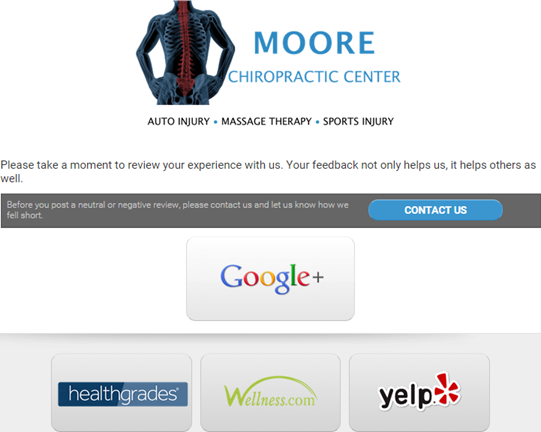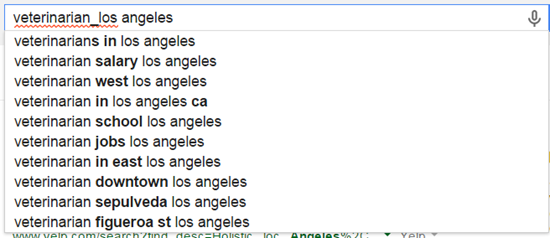We local-SEO geeks talk about the same old basic principles a little too much: clean up your citations, don’t get penalized by Google, be mobile-friendly, earn “local” links, create “unique” content, deserve reviews, ask for reviews, etc.
It’s all good advice. I’ve devoted many of my blog posts in the last 4 years to unpacking that advice so it’s easy to act on.
The trouble is we’re repetitive. We’re almost as bad as the talking heads at CNN. We rarely move on to what you should do once you’re pretty solid on the basics – and there is a lot you can and should do.
(In fact, many of the overlooked wins can also help you even if you just started working on your local SEO.)
Here are 20 stones I find unturned way too often:
1. Nail the categories on your non-Google listings: Pick out the most-relevant ones, and as many of them as are applicable. Dig them up with Moz Local’s free “Category Research” area and with my category lists for Apple Maps and Yelp.
2. Do a second round of work on your citations. Do it a couple of months after the initial blob of work. You might be amazed at how many stragglers you find. Might be enough to motivate you for a third go-round.
3. Try to find and possibly hire a MapMaker editor to join the Forces of Good in your local anti-spam war. Of course, there’s no guarantee that even a MapMaker editor can stop your competitors’ spam offensive, but it’s worth a shot.
4. Become or get to know an “Elite” Yelper (like this recruit). Got a review that’s viciously personal, un-PC, or is obviously from an imposter? The Elite Yelper may know just how to phrase the takedown request for the best chances of a takedown. Also, because most Elite Yelpers don’t really have lives, Yelp seems to expect them to report data-errors (like wrong addresses), and usually acts on them.
5. Embedding on your website the Google map that’s featured on your Places page. Don’t embed a map of a generic address. You want Google to know people are looking up directions to you.
6. Get a Google Business View photo shoot. (10 reasons here.)
7. Pick the right itemtype for the blob of name / address / phone info that you’ve marked up with Schema.org markup. Or take a few extra minutes to go bananas with your Schema.
8. Join a couple of local and industry associations. I’m talking about your local Chamber of Commerce and the sorts of organizations you’d find if you Google the word that describes your business + “association” or “organization.” They’re often worth joining for the offline benefits, and you’ll probably get a good link.
9. Diversify the sites where you encourage customer reviews. The benefits are many.
10. Create a “Reviews” page. Use it to showcase your reviews (possibly with widgets and badges) and to ask any customers who visit the page to put in a good word. You can pretty easily create a page from scratch, or you can make a nice one with a service like Grade.us. Link to it in the signature of your emails, as a gentle way to encourage any customers you email to pick up a quill.

11. Write blog posts to answer super-specific questions that a customer might type into Google. Don’t try to rank for your main keywords (“How to Pick the Best Dentist in Cleveland: a Guide by Cleveland Dentists for Cleveland Dentist Patients”). It won’t work and you’ll look stupid. (Refer to this post and its follow-up.)
12. Get some barnacle SEO happening. By now, Will Scott’s concept isn’t new, but most business owners still don’t even try to do it. But just start with the basics: if you pick out all the right categories (see point #1) and encourage reviews on a variety of sites (see point #9) you’ll be in pretty good shape.
13. Use wildcard searches for keyword-research. (This one was new to me until very recently.)

14. Lengthen pages that aren’t ranking well – including and perhaps especially your homepage. Yes, this sounds old-school, and about as cool as a pocket protector. But I’m not telling you to add gibberish. Go into detail about what makes you different, describe your service / process, address concerns the reader might have, etc. Google likes having meat to sink its teeth into. One-paragraph Wonder Bread pages tend not to do as well.
15. Ask for reviews twice. People forget, and it’s a nice excuse to keep in touch. Follow up with customers you asked for a review – especially if they said they would. It’s easy to avoid making yourself a pest: just say you’d still appreciate their feedback, ask them if they have any questions for you, and thank them in advance.
16. Include links to sites where you have reviews. (Be sure to have those links open into a new browser tab, so nobody’s leaving your site.) Use review widgets and badges when you can.

17. Cannibalize underperforming microsites, bad blog posts, or other online carcasses. Grab (and edit as need be) any content that’s redeemable, and use it to make your site bigger and better.

18. Get listed on Apple Maps. Yes, everyone knows about aMaps by now, but I’m amazed at how many times I start working for clients and see only their competitors on Apple.
19. Try hard to reach non-English speakers, if applicable. Don’t just stick Se Habla Español (for example) in your footer as an afterthought. Include a paragraph in that language on your homepage and on your “Contact” page. Maybe create a whole page geared toward those customers. Be sure to use the hreflang tag if you have more than one version of the same page.
20. If you’re a local SEO-er, find steps your clients might be able to do better than you can. Don’t just look for more billable hours; look for the best person for the job, or the best combination of people. Don’t spend hours trying to dig up all their old phone numbers and addresses; ask them first. Whenever a writing task comes up, pump your clients for info. When you need to find link opportunities, send them my link questionnaire. They know the business better than you do. If you don’t get much cooperation, fine. At least you tried, and you’re giving them options. But I’ve found that most clients recognize when they’ve got just the right wrench for the oddly-shaped bolt.
—
What’s an “overlooked” local SEO tip you like?
Any that you’re considering but not sure about?
Leave a comment!

